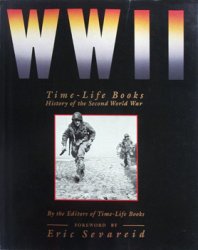For Nelson [Ed Nelson, administrator for Argenbright Security at Dulles International Airport] nothing the FBI and INS agents were asking his people made sense. “They were not asking about the hijackers—they were focusing in on what my screeners might have done wrong. It was as if they were working off a script,” he says.
According to FBI agents assigned to Dulles that day, who agreed to speak only if their names and office assignments were not published, that is precisely what they were given by supervisors at several Washington-area FBI offices. The orders came from headquarters through the local Washington-area FBI field offices and the Joint Task Force on Terrorism. The teams of agents were told to “get the screeners to admit they had violated FAA recommended procedures,” one of the FBI supervisors says.
Susan B. Trento and Joseph J. Trento, Unsafe at Any Altitude: Failed Terrorism Investigations, Scapegoating 9/11, and the Shocking Truth about Aviation Security Today (Hanover, NH: Steerforth, 2006), 36.
Special scrutiny. Teams of officials wanted Argenbright employees to confess to violations of FAA rules. Some of the employees disappeared into government hands, never to reappear at Dulles. Many were deported and others lost their jobs in the aftermath of the investigations. The government needed a scapegoat, and Argenbright Security was available. Information about alleged deficiencies began to be leaked to the media.
An earlier brush with the authorities in 1999 made Argenbright Security susceptible to scapegoating. An employee had been arrested for drug possession in January 1999, leading to an investigation by the Philadelphia FAA security staff. A screening text revealed that some of the employees had not received mandatory training. A subsequent investigation revealed that a supervisor had falsified records, and he ended up in jail. This black mark made the Philadelphia FAA suspicious of Argenbright Security and its screening procedures, suspicions that resurfaced after September 11.
Argenbright Security and other private security companies were unable to survive the aftermath of September 11. Despite some efforts by Republican congressmen to preserve the private security system, Congress passed legislation creating the Transportation Security Administration (TSA), a bill that President George W. Bush signed into law. Almost all employees of the private security companies were excluded from employment with the new organization.
Stephen E. Atkins
See also American Airlines Flight 77 See Document 45 Suggested Reading
Trento, Susan B., and Joseph J. Trento. Unsafe at Any Altitude: Failed Terrorism Investigations, Scapegoating 9/11, and the Shocking Truth about Aviation Security Today. Hanover, NH: Steerforth, 2006.




 World History
World History









